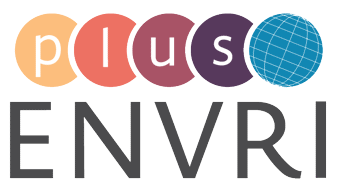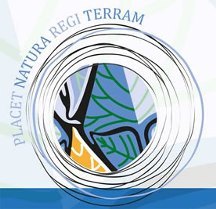IAPG considers the 35th IGC – International Geological Congress, held in Cape Town (South Africa), the event that opens a new phase for Geoethics and for the Association. In order to celebrate this passage, the IAPG Drafting Committee, formed by Giuseppe Di Capua, Peter Bobrowsky and Silvia Peppoloni, has put together the “Cape Town Statement on Geoethics” (CTSG), a document to be considered as the product of an international effort to focus the attention of geoscientists on the development of shared policies, guidelines, strategies and tools, with the long-range goal of fostering the adoption of ethical practices in the geoscience community. The final document sums up all the values, concepts, contents developed in the first 4-year activity of IAPG, giving a perspective for the future development of geoethics. The CTSG has been announced during the opening keynote speech by Silvia Peppoloni (IAPG Secretary General) in the first IAPG session on geoethics at the 35th IGC. After the congress, the draft version has been sent for comments and suggestions to all the IAPG officers (members of the Executive Council, Coordinators of the National Sections, Corresponding Citizen Scientists) and to the 35th IGC Champions of the Theme “Geoscience Professionalism and Geoethics”. Once improved (thanks in particular to Nic Bilham, Martin Bohle, Emilia Hermelinda Lopera Parejas, David Mogk), the final version has been ratified by the Executive Council of the IAPG and finally published in the IAPG website.
Cape Town Statement on Geoethics
Download the Cape Town Statement on Geoethics (pdf version)
Preamble
The concepts, values and views on individual responsibilities of geoscientists, expressed in the “Cape Town Statement on Geoethics” reflect an international consensus. The statement aims to capture the attention of geoscientists and organisations, and to stimulate them to improve their shared policies, guidelines, strategies and tools to ensure they consciously embrace (geo)ethical professional conduct in their work.
Introduction
Geosciences have major impacts on the functioning and knowledge-base of modern societies. Geoscientists have specific knowledge and skills, which are required to investigate, manage and intervene in various components of the Earth system to support human life and well-being, to defend people against geohazards and to ensure natural resources are managed and used sustainably. This entails ethical obligations. Therefore, geoscientists must embrace ethical values in order best to serve the public good.
Geoethics is an emerging subject, which promotes a way of thinking and practicing geosciences, within the wider context of the roles of geoscientists interacting with colleagues, society and the planet.
Only by guaranteeing the intellectual freedom of researchers and practitioners to explore and discover in the Earth system, is it possible for geoscientists to follow ethical approaches in their work. Likewise, only by increasing researchers’ and practitioners’ awareness of the ethical implications of their work is it possible to develop excellent geoscience to serve society and to reduce the human impact on the environment.
Definition of Geoethics
Geoethics consists of research and reflection on the values which underpin appropriate behaviours and practices, wherever human activities interact with the Earth system.
Geoethics deals with the ethical, social and cultural implications of geosciences knowledge, education, research, practice and communication, and with the social role and responsibility of geoscientists in conducting their activities.
Purpose
Embracing geoethics is essential: to improve both the quality of professional work and the credibility of geoscientists, to foster excellence in geosciences, to assure sustainable benefits for communities, as well as to protect local and global environments; all with the aim of creating and maintaining the conditions for the healthy and prosperous development of future generations.
Fundamental Values of Geoethics
• Honesty, integrity, transparency and reliability of the geoscientist, including strict adherence to scientific methods;
• Competence, including regular training and life-long learning;
• Sharing knowledge at all levels as a valuable activity, which implies communicating science and results, while taking into account intrinsic limitations such as probabilities and uncertainties;
• Verifying the sources of information and data, and applying objective, unbiased peer-review processes to technical and scientific publications;
• Working with a spirit of cooperation and reciprocity, which involves understanding and respect for different ideas and hypotheses;
• Respecting natural processes and phenomena, where possible, when planning and implementing interventions in the environment;
• Protecting geodiversity as an essential aspect of the development of life and biodiversity, cultural and social diversity, and the sustainable development of communities;
• Enhancing geoheritage, which brings together scientific and cultural factors that have intrinsic social and economic value, to strengthen the sense of belonging of people for their environment;
• Ensuring sustainability of economic and social activities in order to assure future generations’ supply of energy and other natural resources.
• Promoting geo-education and outreach for all, to further sustainable economic development, geohazard prevention and mitigation, environmental protection, and increased societal resilience and well-being.
Geoethical Promise
The adoption of the following Hippocratic-like oath (the “Geoethical Promise”) by early-career geoscientists is proposed, to promote respect for geoethics values in geoscience research and practice:
I promise…
… I will practice geosciences being fully aware of the societal implications, and I will do my best for the protection of the Earth system for the benefit of humankind.
… I understand my responsibilities towards society, future generations and the Earth for sustainable development.
… I will put the interest of society foremost in my work.
… I will never misuse my geoscience knowledge, resisting constraint or coercion.
… I will always be ready to provide my professional assistance when needed, and will be impartial in making my expertise available to decision makers.
… I will continue lifelong development of my geoscientific knowledge.
… I will always maintain intellectual honesty in my work, being aware of the limits of my competencies and skills.
… I will act to foster progress in the geosciences, the sharing of geoscientific knowledge, and the dissemination of the geoethical approach.
… I will always be fully respectful of Earth processes in my work as a geoscientist.
I promise!
Final Statement
It is essential to enrich the roles and responsibilities of geoscientists towards communities and the environments in which they dwell, as well as paying attention to each scientist’s individual conscience and relationships with colleagues. Human communities will face great environmental challenges in the future. Geoscientists have know-how that is essential to orientate societies towards more sustainable practices in our conscious interactions with the Earth system. Applying a wider knowledge-base than natural sciences, geoscientists need to take multidisciplinary approaches to economic and environmental problems, embracing (geo)ethical and social perspectives. Geoscientists are primarily at the service of society. This is the deeper purpose of their activity.
In the coming years, especially when addressing matters like energy supply, use of geo-resources, land management, pollution abatement, mitigation of geo-risks, and climate change adaptation and mitigation, ethical and social issues will be central in scientific discussion and in public debate. In addition, handling large quantities of data, science and risk communication, education strategies, issues of research integrity, anti-harassment and anti-discrimination policies, gender balance and inclusion of those living with disabilities will be major topics for geoscientists.
Raising the (geo)ethical awareness and competences of the members of the geoscience community is essential, also to increase trust and credibility among the public. This can best be achieved in the near future by two means: by promoting more effectively existing guidance such as codes of ethics/conduct and research integrity statements; and by introducing geoethics into geoscience curricula, to make geoethics a basic feature of the training and professional activity of geoscientists.
_________________________
The Cape Town Statement on Geoethics was prepared during the 35th IGC – International Geological Congress in Cape Town, South Africa (27 August – 4 September 2016)
Drafting Committee: Giuseppe Di Capua, Silvia Peppoloni, Peter Bobrowsky
With the contribution of: Nic Bilham, Martin Bohle, Andy Clay, Emilia Hermelinda Lopera Parejas, David Mogk
Approved by the IAPG Executive Council on 26th October 2016
How to cite:
Di Capua G., Peppoloni S. and Bobrowsky P. (2016). Cape Town Statement on Geoethics. With the contributions of Bilham N., Bohle M., Clay A., Lopera E.H., Mogk D. IAPG – International Association for Promoting Geoethics. Online available: http://docs.wixstatic.com/ugd/5195a5_aee0b5566efb4c11a75adcac498bffc7.pdf


